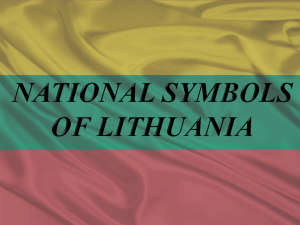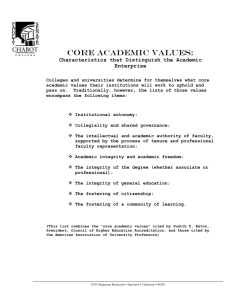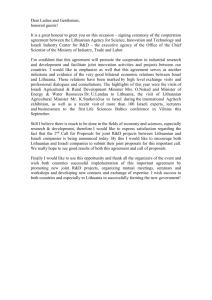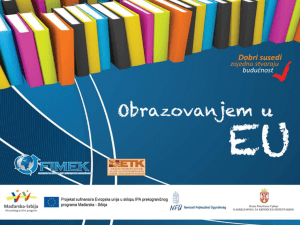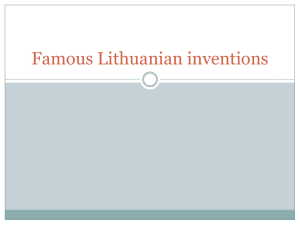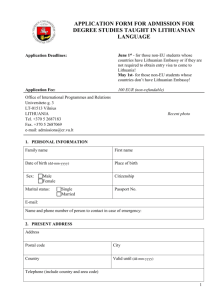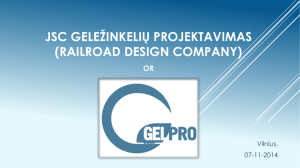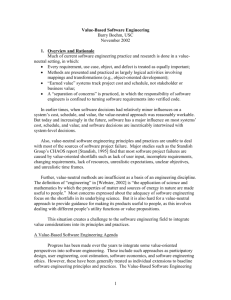CONTENTS
advertisement
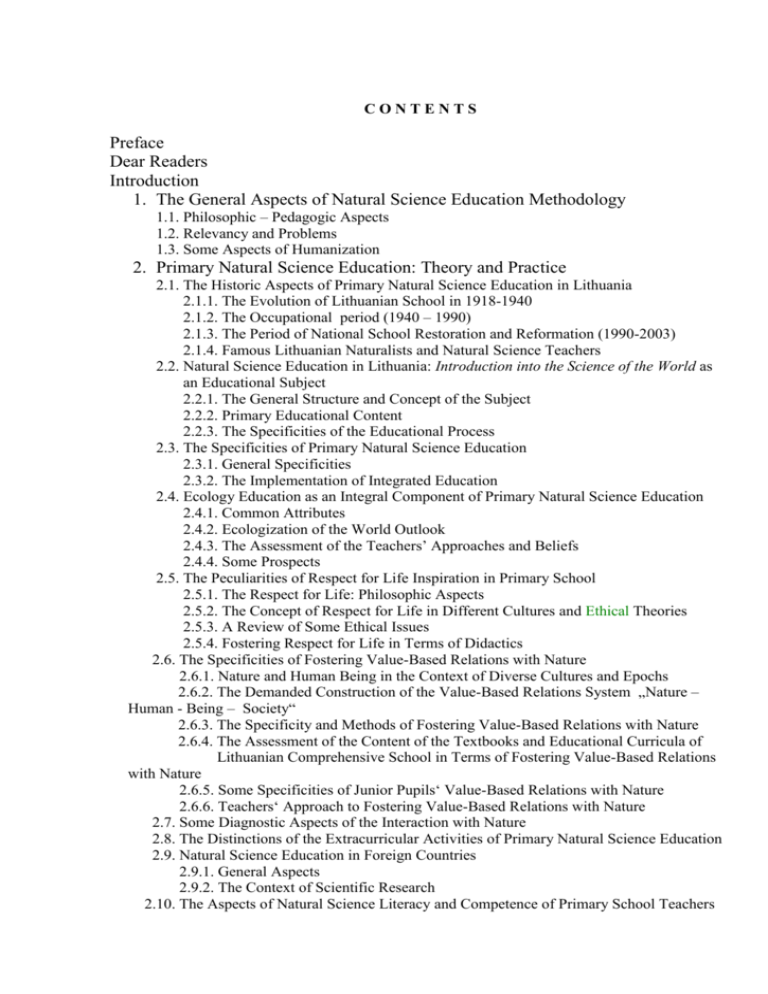
CONTENTS Preface Dear Readers Introduction 1. The General Aspects of Natural Science Education Methodology 1.1. Philosophic – Pedagogic Aspects 1.2. Relevancy and Problems 1.3. Some Aspects of Humanization 2. Primary Natural Science Education: Theory and Practice 2.1. The Historic Aspects of Primary Natural Science Education in Lithuania 2.1.1. The Evolution of Lithuanian School in 1918-1940 2.1.2. The Occupational period (1940 – 1990) 2.1.3. The Period of National School Restoration and Reformation (1990-2003) 2.1.4. Famous Lithuanian Naturalists and Natural Science Teachers 2.2. Natural Science Education in Lithuania: Introduction into the Science of the World as an Educational Subject 2.2.1. The General Structure and Concept of the Subject 2.2.2. Primary Educational Content 2.2.3. The Specificities of the Educational Process 2.3. The Specificities of Primary Natural Science Education 2.3.1. General Specificities 2.3.2. The Implementation of Integrated Education 2.4. Ecology Education as an Integral Component of Primary Natural Science Education 2.4.1. Common Attributes 2.4.2. Ecologization of the World Outlook 2.4.3. The Assessment of the Teachers’ Approaches and Beliefs 2.4.4. Some Prospects 2.5. The Peculiarities of Respect for Life Inspiration in Primary School 2.5.1. The Respect for Life: Philosophic Aspects 2.5.2. The Concept of Respect for Life in Different Cultures and Ethical Theories 2.5.3. A Review of Some Ethical Issues 2.5.4. Fostering Respect for Life in Terms of Didactics 2.6. The Specificities of Fostering Value-Based Relations with Nature 2.6.1. Nature and Human Being in the Context of Diverse Cultures and Epochs 2.6.2. The Demanded Construction of the Value-Based Relations System „Nature – Human - Being – Society“ 2.6.3. The Specificity and Methods of Fostering Value-Based Relations with Nature 2.6.4. The Assessment of the Content of the Textbooks and Educational Curricula of Lithuanian Comprehensive School in Terms of Fostering Value-Based Relations with Nature 2.6.5. Some Specificities of Junior Pupils‘ Value-Based Relations with Nature 2.6.6. Teachers‘ Approach to Fostering Value-Based Relations with Nature 2.7. Some Diagnostic Aspects of the Interaction with Nature 2.8. The Distinctions of the Extracurricular Activities of Primary Natural Science Education 2.9. Natural Science Education in Foreign Countries 2.9.1. General Aspects 2.9.2. The Context of Scientific Research 2.10. The Aspects of Natural Science Literacy and Competence of Primary School Teachers 2.10.1. General Aspects of Competence 2.10.2. Natural Science Literacy and Competence of Primary School Teachers 2.10.3. Some Aspects of Primary School Would-be Teachers‘ Competence 3. Basic and Upper-Secondary Natural Science Education in Lithuanian Comprehensive School 3.1. General Points of the Evolution of Lithuanian Comprehensive School in 1990 – 2003 3.2. The Assessment of the Tendencies of Schoolchildren‘s Natural Science Education Knowledge 3.3. The Specificities of Integrated Natural Science Education 3.3.1. Some Philosophic, Didactic and Social Aspects 3.3.2. The Reasons, Trends and Experience of Teaching Integration 3.3.3. Integrated Teaching in Terms of the Practic Approach 3.3.4. The Implementation of Integrated Teaching under the Circumstances of Didactic Differentiation 3.3.5. Integrated Teaching in Forms 5 and 6 3.3.6. Some Aspects of Curricula 3.4. The Specificities of Designed Natural Science Education 3.5. Profiled Natural Science Education in Forms 11 and 12 3.5.1. General Specificities 3.5.2. The Assessment of the Eleventh-Formers and Twelfth-Formers’ Opinions and Evaluations 3.6. The Assessment of the Approaches, Opinions and Evaluations of Natural Science Teachers Afterword References Appendixes

